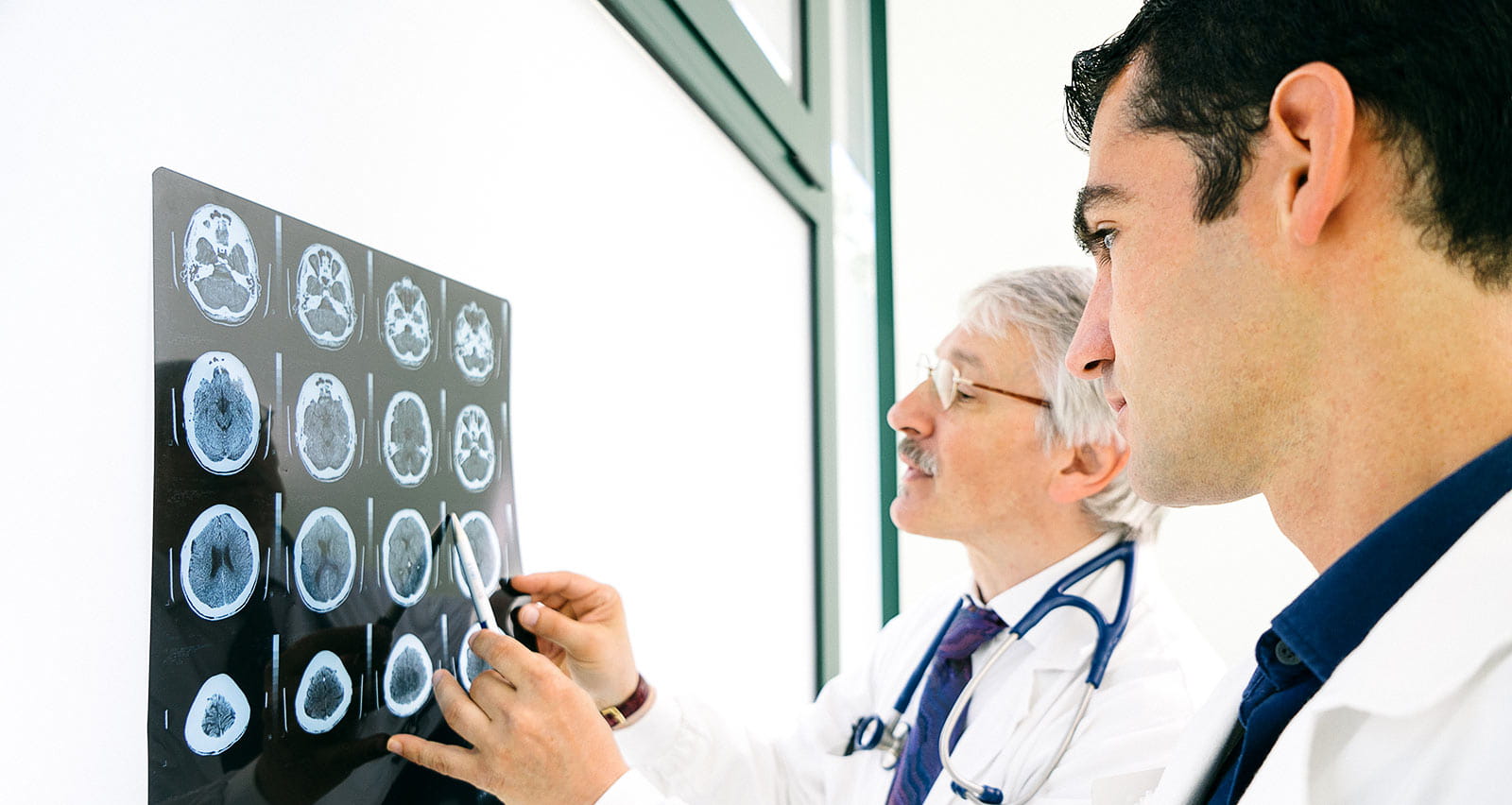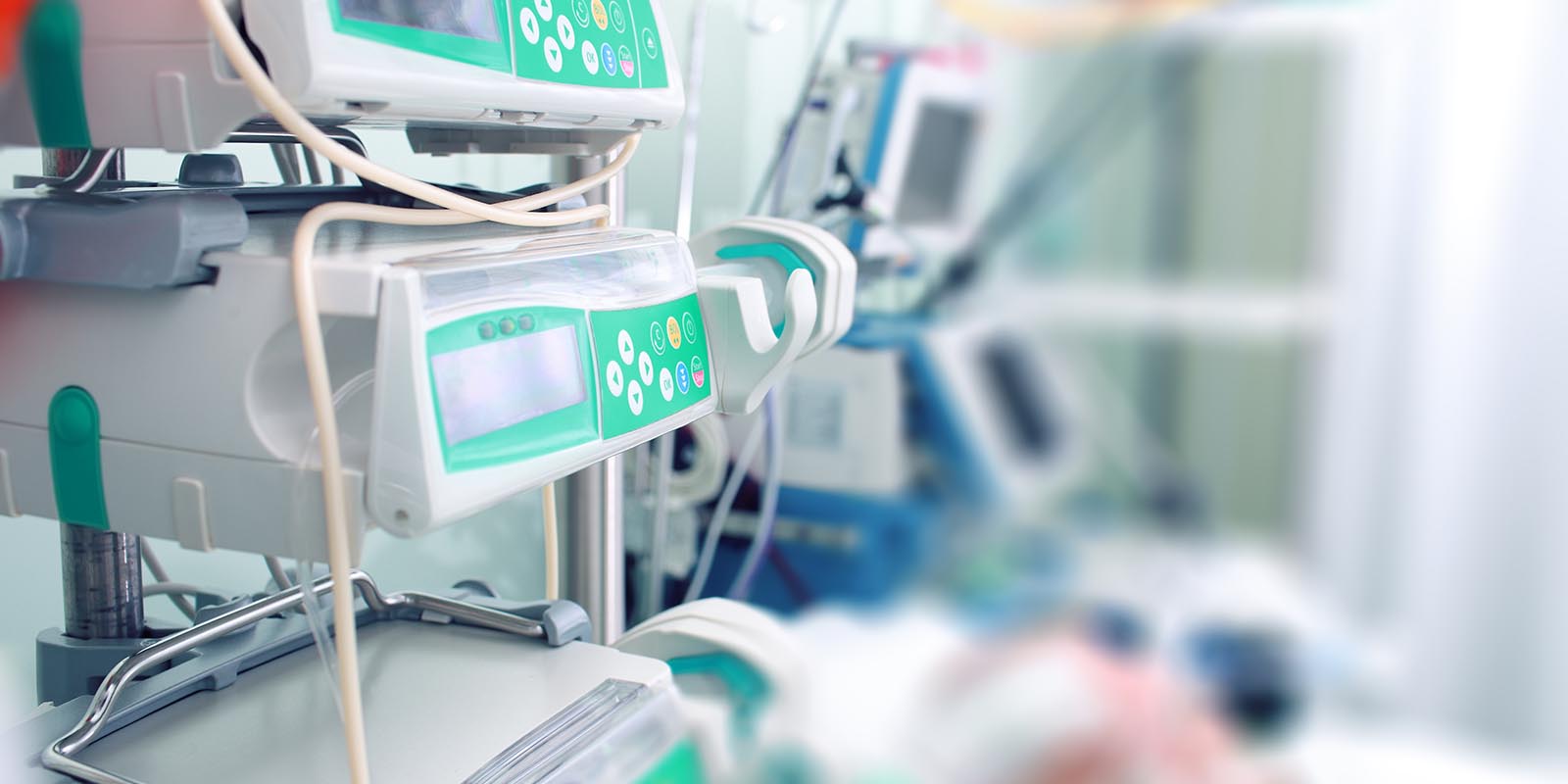
Comprehensive Stroke Center at University Hospitals
The board-certified stroke specialists at University Hospitals Comprehensive Stroke Center include vascular neurologists, neurosurgeons, neuro-critical care intensivists and interventional specialists, working together to combine their training and skill to handle the most complex neurovascular disorders.
Your health is important. Get expert care.
Offering in-person and virtual visits. You can book an appointment with a UH Neurological expert close to home by calling 216-844-2724.
Learn more about virtual visitImmediate care makes the difference in a successful recovery
Anyone who has experienced a suspected stroke or transient ischemic attack should call 9-1-1 to get to the emergency room for the right care, right away. Immediate care can make the difference in a successful recovery. At UH, our emergency team is trained to quickly recognize any suspected stroke symptoms, and this triggers a consult with our stroke specialists who will determine next steps.

There are a variety of symptoms that could indicate a possible stroke, including:
- A sudden, severe, and uncharacteristic headache
- Slurred speech or difficulty talking or understanding
- Numbness or weakness, especially if it involves one side of the body
- Sudden trouble walking or standing
- Sudden blurred or lost vision involving one eye or seeing to one side
What is Ischemic Stroke?
Ischemic stroke is the most common type of stroke. They occur when a fatty substance (plaque) builds up in the arteries and narrows them, causing blood to flow more slowly and blood clots to form. These clots can block the artery, leading to a stroke.
The two main types of ischemic stroke are:
- Embolic stroke: When a clot forms somewhere in the body and travels through the blood vessels to the brain, stopping blood blow.
- Thrombotic stroke: When clots form in the artery that supplies blood to the brain.
Risk factors for ischemic stroke include:
- Atherosclerosis (plaque buildup in arteries)
- Arrhythmia (irregular heartbeat)
- Heart attack
- Heart disease
- Valve problems
- Blood clotting problems
You are also at higher risk for ischemic stroke if you are 60 years or older, have a family history of stroke, are a smoker, or have high blood pressure, high cholesterol or diabetes.
What is a Hemorrhagic Stroke?
A hemorrhagic stroke occurs when a blood vessel in the brain ruptures or leaks causing bleeding into or around the brain. There are two main kinds of hemorrhagic stroke.
Intracerebral hemorrhage: This occurs when a fragile brain artery ruptures causing bleeding into the brain tissue. This rupture is very sudden and can be severe causing brain damage and swelling. The most common causes are:
- High blood pressure, or hypertension.
- Diabetes-related damage to small blood vessels.
- Blood thinning medications or blood clotting disorders.
- Arteriovenous malformations (AVMs) and cavernous malformations: regularly formed blood vessels connecting arteries and veins in the brain identifies a malformation of the vessels.
- Cerebral amyloid angiopathy – occurs when an aging protein in the walls of blood vessels causes blood vessels to become fragile and prone to bleeding. This amyloid protein can also accumulate in brain cells leading to memory loss, or dementia.
Subarachnoid hemorrhage: results from bleeding around the brain, often causing a severe, “worst of my life” headache. Although this type of stroke only causes 5 percent of all strokes, it is the most severe. The most common causes are:
- Aneurysm is a bulging or ballooning of the wall of the blood vessel, typically at the very base of the brain.
- The conditions which can cause intracerebral hemorrhages – AVMs, blood clotting medicines and disorders, and cerebral amyloid angiopathy, can also be a cause for subarachnoid hemorrhage.
Hemorrhagic types of strokes can be very serious – and sometimes life-threatening. Now with advanced imaging techniques such as CT angiography or MR angiography, many of these conditions can be identified before they cause severe bleeding and can be treated and repaired to prevent a stroke.
If you or someone you love has symptoms of a hemorrhagic stroke or is found to have an AVM or an aneurysm that might cause a hemorrhagic stroke, it is important to seek treatment right away from a clinical specialist – especially one that has the specialized training and experience in neurovascular specific disorders.
Expert Diagnosis to Begin Lifesaving Treatment
Using the latest imaging technology, our neurology team at UH will pinpoint your exact problem and determine the best treatment for your individual condition. Our specialists are available 24 hours a day, every day and respond within minutes to emergency situations. If surgery is necessary, our specialists will determine the best treatments available and discuss the options with you – whether traditional surgery or minimally invasive or endovascular techniques and arrange for rapid treatment to get the best outcomes.
Our post-operative unit teams are also highly-qualified to monitor patients recovering from neurovascular injuries. People who have had a stroke can be more susceptible to having another one – or having a other medical problems, such as a heart attack or pneumonia. Depending on the severity of each condition, a patient may remain in our neurological intensive care unit, the neuro intermediate care unit or be seen in one of our post-operative areas. Either way, the stroke specialists can work as a team with specialists from medicine, surgery and anesthesia across University Hospitals system to help patients recover from their stroke or from surgery for improved health.

Multidisciplinary Approach Improves Outcomes
In addition to our emergency response efforts, our stroke specialists at the Comprehensive Stroke Center use a multidisciplinary approach to manage neurovascular conditions over time. Collaborative meetings happen every day, but every week, the team meets to discuss complex cases, review the individual’s current state of health, treatment progress and next steps. By bringing multiple perspectives together with the expertise of an entire team, we provide the latest therapies and move you swiftly along the road to recovery.
Commitment to Research Excellence
Our entire neuroscience team at University Hospitals has a strong commitment to find better, faster and more effective ways to treat neurovascular conditions. With this dedication to research and discovery, our team participates in national and international clinical trials that offer the most cutting-edge and innovative treatments to our patients. These, along with other research efforts, keep us up-to-date on the newest therapies and prompt us to continuously re-envision how we address any neurological disorder.
With an experienced and skilled clinical team, collaborative treatment and sophisticated diagnostic technology, University Hospitals is equipped to handle all types and severity of neurovascular illness, especially the most complex. As a result, patients from near and far come to our facilities to receive care.

History of Innovation
The Comprehensive Stroke Center at University Hospitals Neurological Institute in Cleveland, Ohio has a legacy of innovation in advancing care protocols and overall excellence in outcomes.
The center is recognized for a number of stroke care advances, including:- Cleveland Health Quality Choice, 1991-1998: Developed a data collection tool adopted by Get with the Guidelines.
- Leadership in American Heart Association Cuyahoga County Operation Stroke, 1999: Stroke data collection led to key publications.
- Coverdell National Stroke Registry, 2000 – present: Northeast Ohio was the first to collect regional data.
- Comprehensive Stroke Center staff have developed NINDS guidelines and authored AHA/ASA and other national practice statements.
- Increased the use of tPA or “clot busting therapy” for ischemic stroke by 13.5 times throughout UH system hospitals since launching the System Stroke Program in 2008.
- The only health network in northeast Ohio that shares data and best practices across its entire system to standardize stroke protocols to ensure that the same high level of stroke care is delivered, regardless of location.
Make an Appointment Today
Your health is important. Get expert care.
You can book an appointment with a UH Neurological expert close to home by calling 216-844-2724.
Virtual visits and virtual second opinions also are available. Learn more about virtual visit.


